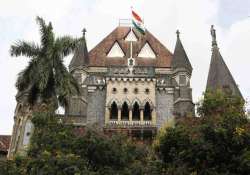PIL in Bombay High Court against reservation for Marathas
Mumbai: Two days after Maharashtra government announced 16 per cent reservation for Marathas in jobs and educational institutions, a PIL was today filed in the Bombay High Court challenging the measure, terming it as a

Mumbai: Two days after Maharashtra government announced 16 per cent reservation for Marathas in jobs and educational institutions, a PIL was today filed in the Bombay High Court challenging the measure, terming it as a “fraud” on the Constitution.
“The state's decision to brand the Maratha community as socially and educationally backward is a fraud committed upon this country and its Constitution. The decision has defrauded the basic fabric of the Constitution,” the PIL filed by former journalist Ketan Tirodkar said.
Four months ahead of assembly elections, the Congress-NCP government had on Wednesday announced 16 per cent reservation for Marathas and five per cent for Muslims in jobs and educational institutions.
However, the PIL has only challenged the reservation for the Marathas. It has urged the court to direct the state government to “recall” the decision.
The PIL said 75 per cent or more land in the state was owned by Maratha community. Between 1962 and 2004, over 1200 MLAs out of over 2000 MLAs, 55 per cent of the total, were Marathas, and more than 72 per cent cooperative institutions were controlled by people belonging to the community.
“Chief Minister Prithviraj Chavan and Deputy Chief Minister Ajit Pawar are from this ‘socially and educationally backward community'. Ninety-nine per cent of the former chief ministers of the state also hail from the same community,” it said.
Terming Maratha community as socially and educationally backward is a “mockery of the people of Maharashtra and of the community”. This is so since Maratha is a linguistic group originating from the term Marathi, said the PIL, which is likely to come up for hearing on Monday.
It alleged that the decision taken by the state cabinet “in the guise of a policy decision” violated the Supreme Court ruling in Indira Sawhney v/s Union of India case.
“Reservation, being an extreme form of protective measure or affirmative action, should be confined to minority of seats.
Even though the Constitution does not lay down any specific bar but the constitutional philosophy being against proportional equality the principle of balancing equality ordains reservation, of any manner, not to exceed 50 per cent,” the PIL said.
“The present decision takes up the reservation in Maharashtra from 51 per cent to 73 per cent in government jobs and educational institutions,” it said.
“The Marathi-speaking population of this state, whose mother tongue is Marathi, are called Marathas.
There is no caste, creed or community that seeks to identify itself by owing allegiance to Marathi language as mother tongue. It is not allowed,” the PIL contended.
“It will be like Hindi speaking populace of Uttar Pradesh seeking reservation on all India level, Hindi being the national language,” it said.
“The state's decision to brand the Maratha community as socially and educationally backward is a fraud committed upon this country and its Constitution. The decision has defrauded the basic fabric of the Constitution,” the PIL filed by former journalist Ketan Tirodkar said.
Four months ahead of assembly elections, the Congress-NCP government had on Wednesday announced 16 per cent reservation for Marathas and five per cent for Muslims in jobs and educational institutions.
However, the PIL has only challenged the reservation for the Marathas. It has urged the court to direct the state government to “recall” the decision.
The PIL said 75 per cent or more land in the state was owned by Maratha community. Between 1962 and 2004, over 1200 MLAs out of over 2000 MLAs, 55 per cent of the total, were Marathas, and more than 72 per cent cooperative institutions were controlled by people belonging to the community.
“Chief Minister Prithviraj Chavan and Deputy Chief Minister Ajit Pawar are from this ‘socially and educationally backward community'. Ninety-nine per cent of the former chief ministers of the state also hail from the same community,” it said.
Terming Maratha community as socially and educationally backward is a “mockery of the people of Maharashtra and of the community”. This is so since Maratha is a linguistic group originating from the term Marathi, said the PIL, which is likely to come up for hearing on Monday.
It alleged that the decision taken by the state cabinet “in the guise of a policy decision” violated the Supreme Court ruling in Indira Sawhney v/s Union of India case.
“Reservation, being an extreme form of protective measure or affirmative action, should be confined to minority of seats.
Even though the Constitution does not lay down any specific bar but the constitutional philosophy being against proportional equality the principle of balancing equality ordains reservation, of any manner, not to exceed 50 per cent,” the PIL said.
“The present decision takes up the reservation in Maharashtra from 51 per cent to 73 per cent in government jobs and educational institutions,” it said.
“The Marathi-speaking population of this state, whose mother tongue is Marathi, are called Marathas.
There is no caste, creed or community that seeks to identify itself by owing allegiance to Marathi language as mother tongue. It is not allowed,” the PIL contended.
“It will be like Hindi speaking populace of Uttar Pradesh seeking reservation on all India level, Hindi being the national language,” it said.